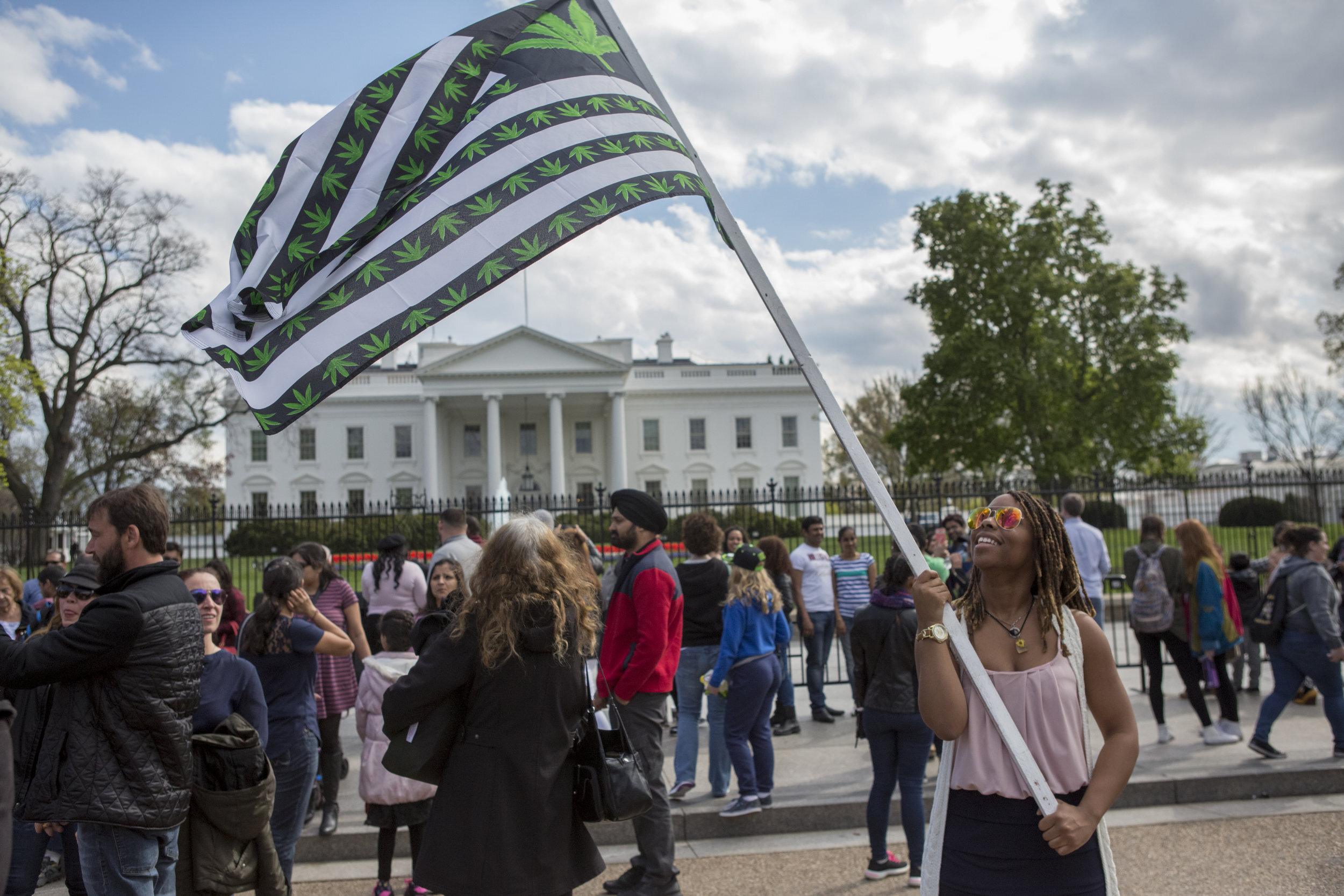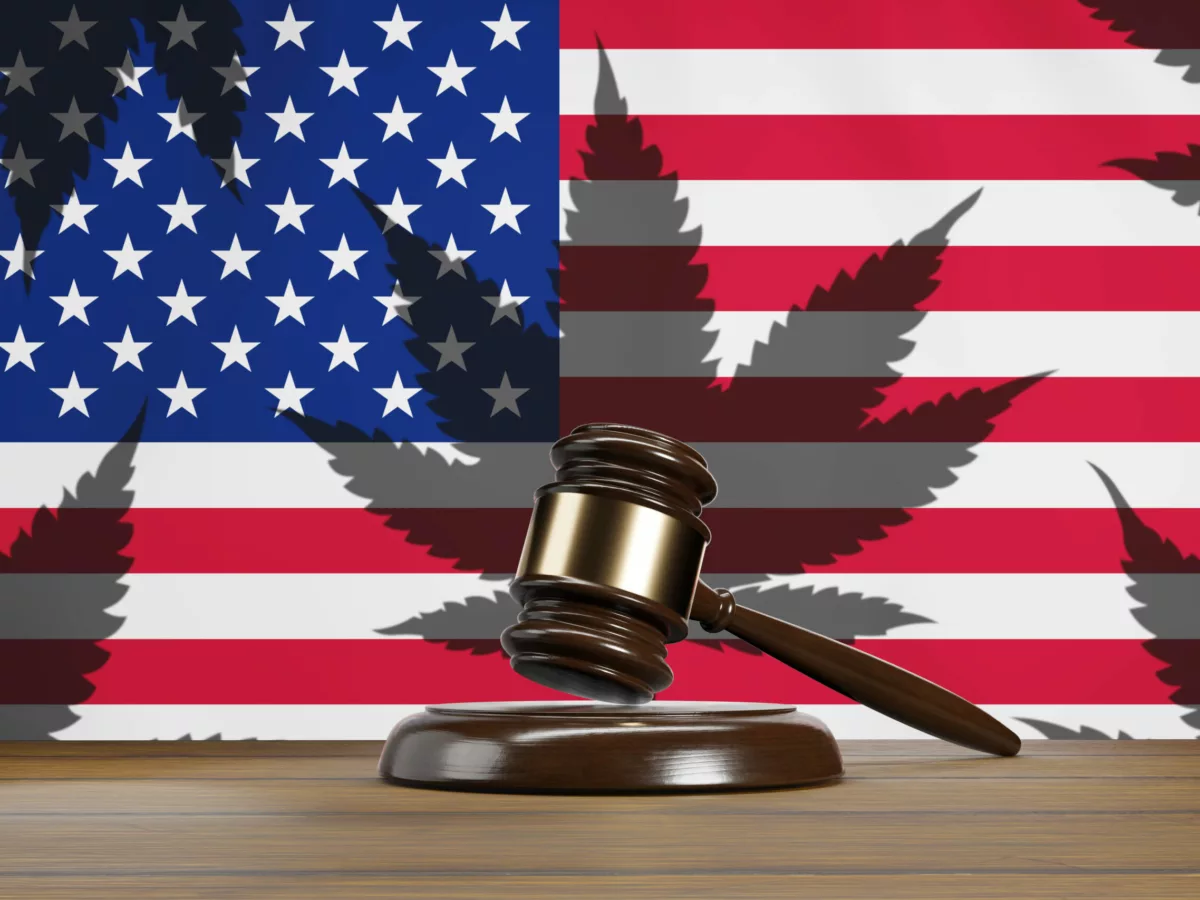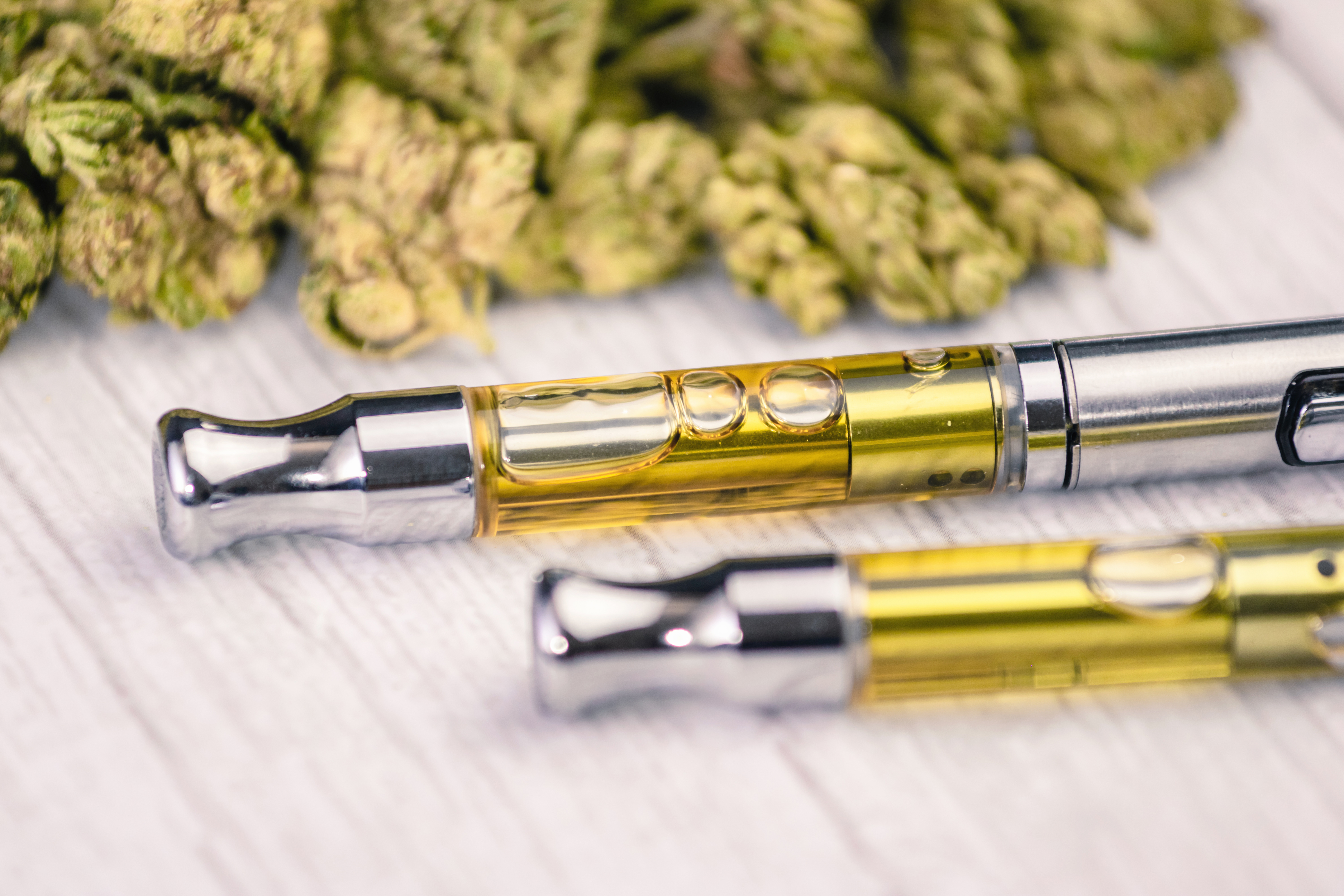In December 2019, all hopes for the possibility of Washington, D.C. passing any bill legalizing or regulating marijuana sales went up in smoke—again. Even so, there are several bills that are currently under review by the D.C. Council that are worth keeping an eye on.
The $1.3 trillion federal spending bill that Congress passed late last year included a rider that prohibited D.C. from legalizing cannabis. The rider states, “None of the funds contained in this Act may be used to enact any law, rule, or regulation to legalize or otherwise reduce penalties associated with the possession, use, or distribution of any Schedule 1 substance.”
The “Harris Rider”—named after its sponsor, Maryland Rep. Andy Harris—has thwarted D.C.’s decisionmaking on cannabis sales since Initiative 71 went into effect in 2015. Since then, The Washington Post has labeled Harris “public enemy no. 1” for cannabis activists, while Mayor Muriel Bowser has publicly criticized the rider as “ridiculous,” tweeting the hashtags: #HandsOffDC and #LeaveUsAlone.
For now, the Harris Rider will extend through September 2020. But what comes after? There is little ability to speculate on when or if the rider will be removed, but for those who are curious as to what plans are in store for the residents of Washington, D.C. if that day comes, The Outlaw Report has compiled all of the cannabis-focused legislation that is currently under review by the D.C. Council.
The Safe Cannabis Sales Act of 2019, introduced by Chairman Phil Mendelson at the request of Mayor Bowser, hopes to create a “comprehensive regulatory scheme” for the cultivation, manufacturing, and sale of cannabis in the District for non-medical use.
If approved, the Alcoholic Beverage Regulation Administration would be renamed the Alcoholic Beverage and Cannabis Administration. It would thereafter be in charge of monitoring the regulation and licensing of cannabis sales and cultivation. Currently, the D.C. Department of Health is in charge of the medical cannabis program.
Other highlights from this bill include requiring at least 60% of the ownership of each new licensee and 60% of licensed employees be District residents. All records of arrests, charges, and convictions related to cannabis possession would be sealed within one year of enactment.
The bill’s fiscal impact statement estimates that a 17% retail sales tax on cannabis for non-medical use could generate $8.7 million in dedicated tax revenue, beginning in fiscal year 2021.
Councilmember David Grosso told The Outlaw Report that he believes this bill is “a good start,” but he argues that his legislation, the Marijuana Legalization and Regulation Act of 2019, is “way more comprehensive and a better approach.” This bill has the support of Councilmembers Robert White, Brianne Nadeau, and Anita Bonds. It hopes to legalize the possession, consumption, display, purchasing, or transporting of cannabis and cannabis-infused products for personal use. All cannabis arrest, prosecution, and conviction records would be expunged.
Grosso’s bill would also establish a “dedicated marijuana fund,” which would consist of all sales tax and excise tax revenue from retail cannabis. The first $1 million would be disbursed to the D.C. Department of Behavioral Health, dedicated to the implementation and maintenance of evidence-based programs and practices aimed at the prevention of substance use for both minors and adults. An additional $750,000 would go towards the Department of Small and Local Business Development for the implementation of a retail cannabis business incubator and technical assistance programs. Finally, $2 million accumulated from the fund would be disbursed to a community-based nonprofit organization to support those who have been disproportionately affected by the nation’s and city’s drug policies. This fund would address job placement, mental health treatment, medical care, among other services.
Grosso has introduced the Marijuana Legalization and Regulation Act multiple times before, in 2013, 2015, 2017, and lastly in 2019. There are four additional pro-cannabis bills introduced by Grosso that are still under D.C. Council review.
The Student Medical Marijuana Patient Fairness Amendment Act of 2019 (now known as “Student Access to Treatment Amendment Act of 2019”) would allow a non-smokeable form of cannabis to be administered to a qualifying patient who is enrolled in school, at the school or enrollment.
Next up, the Medical Marijuana Program Patient Employment Protection Amendment Act of 2019 would prohibit the D.C. government from discriminating in employment against an individual for participation in the medical marijuana program.
The third noteworthy bill is the Prohibition of Marijuana Testing Act of 2019 would prohibit marijuana testing as a condition of employment, except for “certain positions” (e.g., police officers, construction workers, etc.), unless otherwise required by law.
Finally, the Medical Marijuana Patient Health and Accessibility Improvement Amendment Act of 2019 would eliminate the limit on the number of cannabis plants that cultivation centers are permitted to grow and allow for the delivery of medical cannabis to qualified patients.
There are still more plans in the works by Chairman Mendelson. Currently, only D.C. residents who are enrolled in the city’s medical cannabis program are able to shop at dispensaries. Under the Medical Marijuana Reciprocity Proposed Rulemaking Approval Resolution of 2019, that would change to allow “qualifying patients” who are not D.C. residents to be able to purchase medical cannabis. These patients would need to be already enrolled in a medical cannabis program in a state that issues registration cards or state-issued registration documents.
The process of signing up for the District’s medical cannabis program might also become easier. Qualifying patients currently are required to provide a written recommendation from a primary healthcare practitioner as well as two forms of identification, such as a lease or rental agreement, pay stub, or voter registration card. Chairman Mendelson’s and Mayor Bowser’s Medical Marijuana Real ID Registration Proposed Rulemaking Approval Resolution of 2019 would allow patients to prove D.C. residency through a Real ID driver’s license issued by the DMV in lieu of two other forms of identification.
Grosso tells The Outlaw Report that he is “not entirely optimistic” that the Harris Rider will be totally removed by the end of the year. Until then, the future of these bills will remain in limbo, though Grosso says that he believes the D.C. Council and Mayor should move forward regardless.
“Do what is best for the people of the District of Columbia in spite of the rider—and suffer the consequences, whatever they may be,” said Grosso.
Photo by Michelle Goldchain






